Jewish History
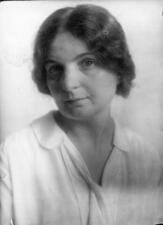
Hilda Geiringer
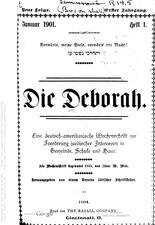
German Immigrant Period in the United States
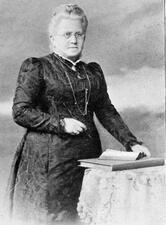
Germany: 1750-1945
The Jewish Reform movement did not liberate women from their subordinate religious status, and the nineteenth-century bourgeois German family ideal with its rigid gender roles soon eclipsed the fluid structure of premodern Jewish families. Jewish women were expected to transmit German bourgeois values while also shaping their children’s Jewish identity.
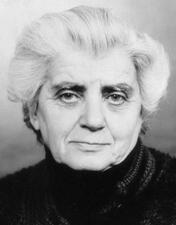
Karen Gershon
Writer and poet Karen Gershon escaped the Holocaust by being sent to England on the Kindertransport. Her best-known book, We Came as Children (1966), documented the collective experiences of refugee children and established her literary reputation in England. Her introspective poetry often reflects on her family and the Holocaust.
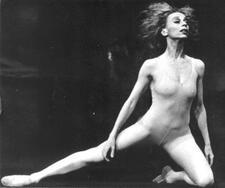
Marika Gidali
After surviving the Holocaust and immigrating from Budapest to Brazil, dancer Marika Gidali became an influential performer, teacher, and choreographer at a time when the arts faced serious repression under military dictatorship. In 1956 Gidali began dancing with the Ballet Company of Theatro Municipal do Rio de Janeiro. Gidali later set up her first school, which was the meeting point for many artists in the mid-1960s.
Élisabeth Gille
Élisabeth Gille (1937-1996) was a French author known most of all for biography of her mother, best-selling novelist Irène Némirovsky, murdered at Auschwitz. It was written borrowing Némirovsky’s voice, narrated in the first person as “dreamt memoirs.”
Natalia Ginzburg
Natalia Ginzburg was an Italian novelist, short story writer, essayist, and political activist. Ginzburg is considered one of the greatest Italian writers of the twentieth century, and her award-winning literary work is recognized for its exploration of family relationships and politics throughout fascism in modern Europe and during World War II.
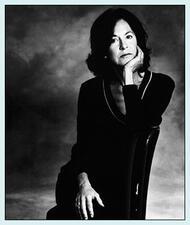
Louise Glück
Louise Glück, American poet, essayist, and educator, was the recipient of the 2020 Nobel Prize in Literature, as well as numerous other awards for her writing; she also served as poet laureate of the United States from 2003 to 2004. One finds the personal, the mythological, and the Biblical woven intricately throughout Glück’s oeuvre.
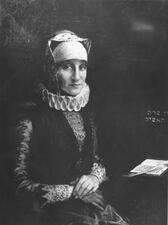
Glueckel of Hameln
Born into an affluent family in Hamburg, Glückel of Hameln became the business partner of her beloved first husband. She began writing memoirs in 1691, after her husband’s death. These memoirs are incredibly detailed, combining a meticulous record of her life and descriptions of events that occurred in local Jewish communities. Her memoirs are both a singularly important social and historical document and one of the greatest literary achievements of Ashkenazi prose–in Yiddish or Hebrew–at least until the end of the eighteenth century.
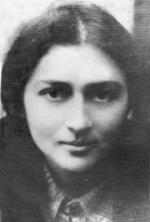
Mire Gola
A passionate idealist, Mire Gola organized anti-German resistance in World War II as a Communist in occupied Poland. She inspired others with her eloquent poetry and her fortitude through imprisonment and torture.
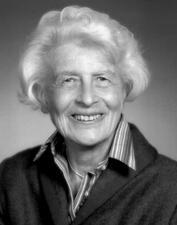
Gertrude Scharff Goldhaber
Emma Goldman
Emma Goldman was a potent voice of anarchism in North America and Europe in the early twentieth century, and her controversial beliefs made her many powerful enemies. Yet even after enduring many contentious interactions with law enforcement, Goldman continued to speak, write, and teach on freedom and individual rights, inspiring her followers to question authority at every turn.
Gertrude/Gego Goldschmidt
Gego, born Gertrude Goldschmidt, was one of Venezuela’s most creative and ingenious artists. Her sculptures have not only a sense of closure but also a boundlessness erasing any distance between viewer and artist and insisting on generating new perspectives.
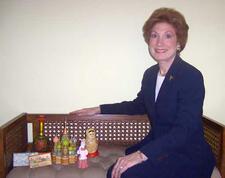
Shannie Goldstein
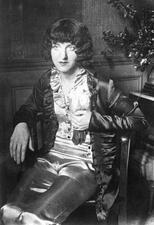
Claire Goll
Claire Goll’s poetry and prose were fueled by the tragedies and scandals that shaped her life. She and her husband, writer Yvan Goll, were central cultural figures of the French avant-garde, and her prolific body of work includes journalism, multiple novels, short fiction, and numerous translations of other authors’ works.

Beate Sirota Gordon
Shira Gorshman
A multi-faceted Yiddish writer, Shira Gorshman embodied the vision and struggles of Jewish socialism throughout her long and productive life. Her work encompassed the shtetl of Lithuania, pioneering Palestine, the Soviet experiment, the Holocaust, and finally the return to modern Israel. In all these journeys her characters, many of whom are women, are revealed in their full humanity and individuality.
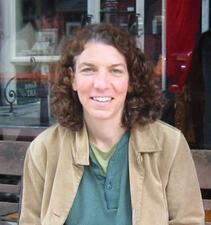
Sally Gottesman
Sally Gottesman, born 1962 in New Jersey and residing in New York, is a non-profit entrepreneur whose leadership and philanthropy have had a major impact on the Jewish feminist and justice landscape.
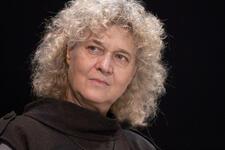
Michal Govrin
Michal Govrin, born in 1950 is an Israeli poet, writer, and stage director. She takes a highly individualized perspective on Israeli-Jewish post-Holocaust reality by combining artistic experimentation with Biblical and Rabbinic sources and philosophical discourse. In her poetry, prose and essays she examines places and spaces within a polyphonic context of architecture, art and theater, the sanctity of land, and the national narrative.
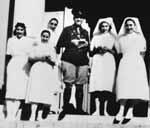
Greek Resistance During World War II
Sephardi and Romaniote women during the resistance movements in Greece and in Auschwitz Birkenau have been rarely mentioned in the literature on World War II, but they made varied contributions to the movement.
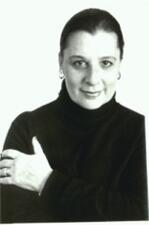
Blu Greenberg
Blu Greenberg is known as the mother of Orthodox feminism and is author of On Women and Judaism: A view from Tradition. She coined the phrase “Where there’s a rabbinic will, there’s a halakhic way,” demanding that rabbis find systemic solutions to help women who feel trapped by aspects of halakhah. Greenberg is a fierce advocate for agunot, women trapped in unwanted marriages.
Aliza Greenblatt
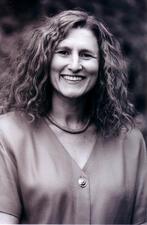
Gloria Greenfield
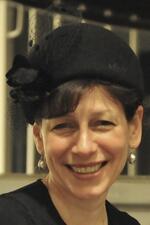
Tina Grimberg
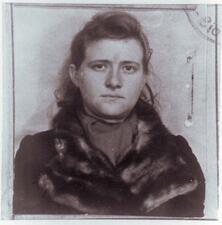
Haika Grosman
Politically active from a young age, Haika Grosman played a key role in the underground resistance to Nazi occupation and the Holocaust and put her safety on the line in the name of the movement.


